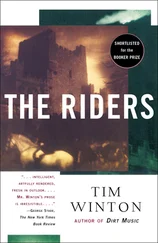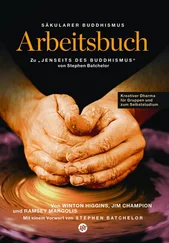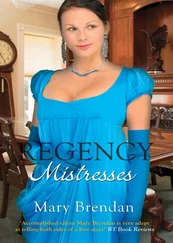There's tree roots down there, I told her. You just dive down and hold on. It's easy.
She never said a thing, just snatched her shoes and scrambled back to the girls higher up the bank, and while I lay in the water trying to decide how to feel about her she smoothed herself back into some kind of authority and led the others up through the trees and out of sight. I felt sympathy and contempt all at once. Car doors slammed and there was the stammer of a starter motor.
Easy, is it? said a voice hot and close in my ear.
I jerked aside with a shout. Loonie bawled with laughter.
Brucie Pike, he said. You're all talk.
Am not.
Are so.
Am not.
Well, then, Pikelet, you better prove it.
So I showed him what I had. We dived all the rest of that day, kicking down time and again to the opaque depths of the Sawyer River to hold our breaths so long that our heads were full of stars, and when we finally climbed out, spent and queasy, the bank plunged and canted beneath us in the evening twilight. That was the first of many such days and we were friends and rivals from then on. It was the beginning of something. We scared people, pushing each other harder and further until often as not we scared ourselves.
My parents didn't quite approve of Loonie. He was a mouthy urchin who roamed the town at will. He lived at the pub and my oldies were not pub-going folk. The fact that Mrs Loon was not Loonie's actual mother seemed to cause Mum some discomfort, but she tried not to let on. My parents were discreet and kindly people. Loonie seemed to provoke more anxiety in them than antipathy. They were so quiet and orderly that only a few years after they were both dead and buried few Sawyer locals could remember much about them, whereas Loonie was a creature of an entirely different sort. Now and again you'll still run into someone in Perth or Kuta with a story about Loonie's old antics, and although the tales are almost always apocryphal they still bear the essential elements of his wildness. Someone as solitary and feral as he was could naturally be expected to be a little simple and naive but Loonie was neither. At twelve he was more worldly than either of my parents and in a queer way they were intimidated by him. He started out patronizing them. He was amused by their innocence, by their English clothes and the brogues they wore in the garden. He mimicked the old man's pottering walk and chafed his hands the way my mother did. Before I ever thought to bring him over to our place he began turning up of his own accord. He appeared at the front fence like a stray, just hanging about at the end of the long, rutted drive, a restless figure seeming to await or even silently demand an invitation to cross the cow paddock. When he was in our yard or, later, at the lunch table, the old folks were nervous and diffident. He batted his big green eyes and joshed them gently in his loaded, mocking tone, smiling until his sun-split lower lip bled against his teeth.
After a week or two, having made an effort to disguise his reluctance, the old boy finally consented to my bringing Loonie out in the boat with us. Loonie was so jovial that first time, so full of larks and noises of appreciation, that he gave us all a headache and even I thought it an act of mercy on the old man's part to have him back again. I think he saw how dearly Loonie loved it, how eager he was to help, how keen he was to please. Despite their primness I think my parents recognized some greater loneliness in my new friend, and they sensed that for all his derisory swagger he respected and even loved them in his way. He often crouched alongside my father at the smoker while the fish were racked and he was forever seizing a teatowel whenever he found himself in my mother's kitchen. Early that summer, when we fell in together without discussion, he was at our place most of the day and into the evening. He always overstayed, yet somehow knew to leave before someone finally dropped a hint.
On Sundays we fished the inlet with the mill men and in late December, when the holidays arrived, we spent weekdays at the river making picnickers nervous. We salvaged junk from the tip so we could augment our bikes with weirdly extended forks and handlebars. We tilted our banana seats and sissy bars until we were virtually riding uphill on any gradient. Out on the highway Loonie played chicken with log trucks while I hid in the bracken at the edge of the forest, willing him to desist and urging him on all at once. We had escape tracks that wound back through the regrowth and spoil ground toward town, so that by the time a rattled truckie pulled over and backed up laboriously, we were long gone. It was a boyhood that now seems so far away I can understand why people doubt such days ever existed. If you tried to talk about it you'd be howled down as some kind of nostalgia freak, called a liar before you even got started. So I don't discuss it much. In this I suppose I am my father's son, a bad communicator, a closed book. I've bored people in bars and lost a marriage to silence. I don't want to join anybody's misery club, to be adopted as a fellow victim of whatever syndrome is doing the rounds this week. I'll talk if no one's listening. It's like blowing the didjeridu, cycling air through and through, doing little more than explaining yourself to your self while you're still sane enough to do it. I'm not a nostalgic man. I can go for weeks without thinking about my boyhood and Sawyer and Loonie, but in my line of work you're going to see things like tonight's asphyxiation and get a cold feeling you're not likely to explain to some kid in a crisp new uniform, someone who's already decided that you're a piece of work.
AS A BOY IN SAWYER I yearned to swim in the ocean but the old man was firmly against it. If I asked him on fishing days he refused on the grounds that I would need watching and this meant he'd have to leave the boat and his lines and his workmates on his only day off and it was too much to ask of him. I knew deep down he'd have gladly sacrificed an hour for my pleasure if only he'd been able to swim enough to save me if I got into strife, but his impotence was beyond admitting. When I asked if I could just ride out to the rivermouth with Loonie he shook his head. Too rough, too far, no way. But I wanted to swim where I could see the bottom, to be where those long, creaming breakers trundled in from the south so I could dive down and see them pass overhead. I hankered after the sea as I'd never done for anything else before. I'd always been such a compliant, respectful child and until that point I was usually content. But being denied access to the ocean was intolerable. Even without Loonie's influence, I would probably have defied the old man in time — I figured I was almost a teenager, after all — but that summer I was emboldened by my new friend's indifference to authority, and though I asked and begged and pleaded beforehand, I eventually set out with Loonie one Saturday and rode to the coast without my father's blessing. It began with a lie. I said we were headed for the river but as we coasted through town and past the servo we simply doubled back behind the pub.
You know why it is, Loonie said as we rolled down the turnoff. You know why your old man's scared, don't you?
Yeah, I said after too long a pause. I didn't want to talk about the fact that my father couldn't swim. I wasn't that disloyal yet.
You're lyin, Pikelet.
I stood on my pedals, wary of being seen by someone from the mill.
Snowy Muir, said Loonie.
Who's he?
Bloke from the mill. Fishin off the Point when they opened the bar. All the snapper was runnin. King wave got him. Just ran up the rock and hauled him in. Found him three days later out at the Holes.
The stony bitumen made my teeth chatter. Wattlebirds buzzed us from the thicket edges.
Читать дальше












